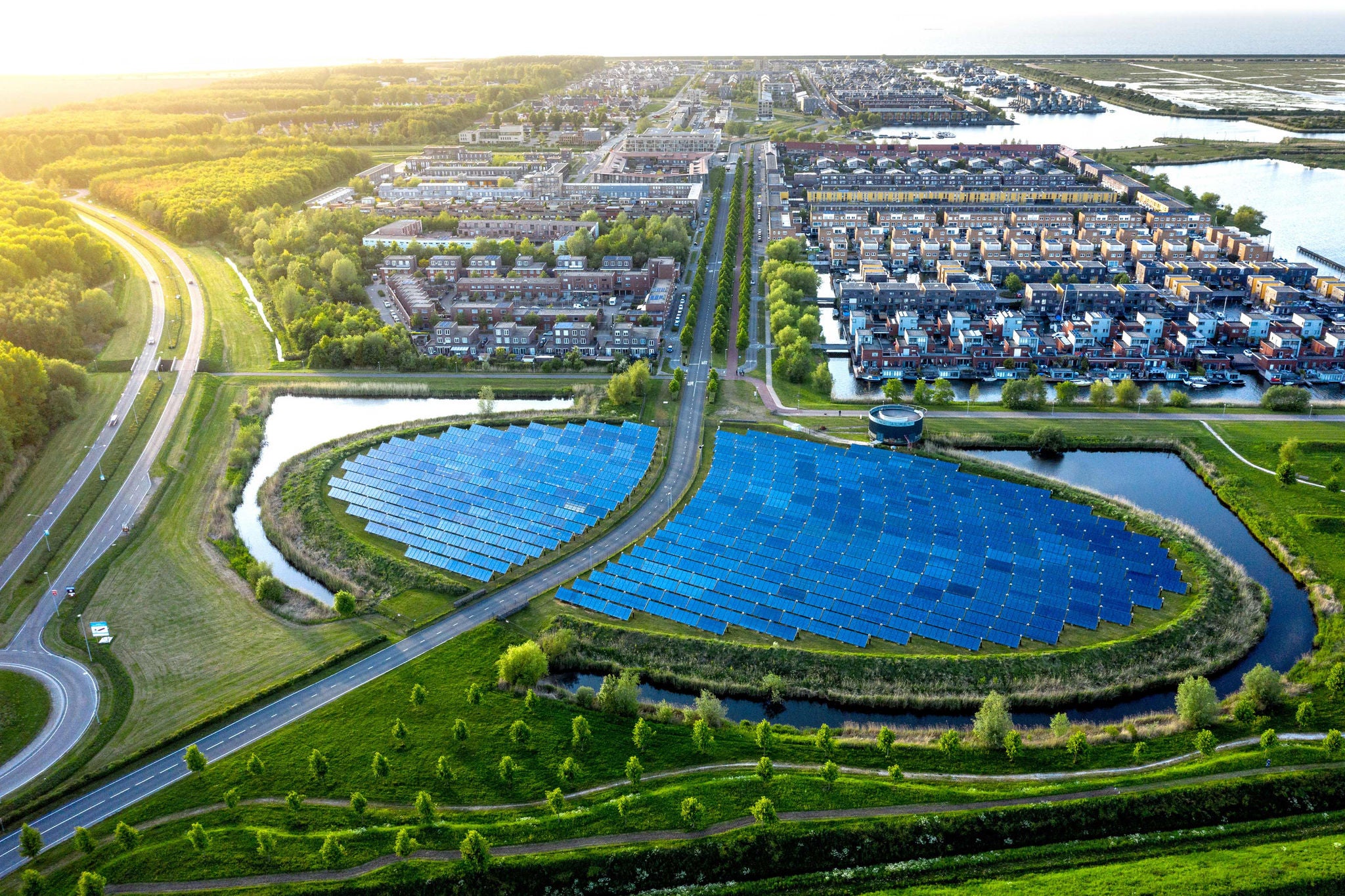EY refers to the global organization, and may refer to one or more, of the member firms of Ernst & Young Global Limited, each of which is a separate legal entity. Ernst & Young Global Limited, a UK company limited by guarantee, does not provide services to clients.

Ireland's FDI future hinges on bold moves in cleantech and renewable energy, leveraging incentives and public finances to maintain its competitive edge.
In brief
- Ireland can enhance its FDI appeal by embracing innovative policies and investments, particularly in the renewable energy sector.
- A Special Savings Green Investment Scheme would incentivise public investment in cleantech, potentially boosting Ireland's energy security and FDI attractiveness.
- To stay competitive, Ireland should consider further enhancing its R&D Tax Credit regime and consider digitalisation credits, ensuring it remains a top choice for knowledge-intensive FDI.
Ireland needs to be bold in its ambition to remain a competitive location for FDI and to realise its potential to be a global leader in cleantech and renewable energy. In his first budget, the Minister for Finance has what could be a once-in-a-generation opportunity to leverage the tax system and healthy public finances to maintain Ireland’s front-running FDI position and accelerate the development of our natural renewable energy resources.
Make no mistake, these issues are inextricably linked. We only need to look at recent reports of Ireland losing out on datacentre investments to understand the importance of security of energy supply. It is no longer simply a case of replacing fossil fuel generation with renewables; we need to increase our generating capacity significantly to keep pace with economic growth and population increases.
The availability and nature of the power available will be critically important to the next wave of FDI which will need to meet its own decarbonisation targets under increasing scrutiny from investors, customers, and regulators.
We are not shy when it comes to moaning about the weather in this country, but it is now time to capitalise on the cause of our complaints. As an island nation, we have some of the best tidal and offshore wind resources anywhere in the world. Sadly, they are largely untapped and will remain so until at least the end of the decade unless investment is ramped up now.
In the first instance, that will require policy changes to smooth the approval process for both the offshore projects and the onshore infrastructure required to connect them to the grid.
That needs to be matched by investment, not only in the headline-generating plan but in the entire upstream and downstream cleantech ecosystem required to deliver the projects and maximise the value they bring to the Irish economy and society.
Minister Chambers could use part of the money at his disposal to establish a Special Savings Green Investment Scheme (SSGIS) which would work on the same lines as the highly successful SSIA (Special Savings Incentive Account) scheme did at the beginning of the century.
In this case the State could top up by 25% accounts used to invest in qualifying cleantech projects, including offshore wind farms and hydrogen and biogas production facilities. Figures produced by the Central Bank of Ireland reveal that private households have more than €153 billion on deposit in Irish banks with 94% of that, or more than €142 billion, in instant-access accounts earning little or no interest.
Giving people an incentive to use their savings to invest in cleantech projects would both accelerate our decarbonisation journey and make the country more attractive to FDI. As things stand, Ireland has seen some slippage in FDI rankings and the country is likely to miss EU emissions reduction targets by some distance, which could result in hefty fines. The gains made through increased FDI along with the savings on fines should offer a significant return on the Government’s investment in the scheme.
The other area that requires some attention is the R&D Tax Credit (RDTC) regime. Before discussing potential improvements, however, we must acknowledge that the regime has been among the best in the world over the years and has played a highly significant role in our overall incentives offering.
In addition, the willingness of successive governments to improve the scheme to respond to changes in the overall FDI tax landscape has been very commendable. Most recently, this has seen the rate of credit increase from 25% to 30% and greater flexibility regarding cash claims.
Welcome though these changes have been, we still have an opportunity to do more. Over the past 12 to 18 months, we have seen a significant intensification in global competition for FDI. Jurisdictions unconstrained by EU state aid rules are offering a range of blandishments to potential investors that can be difficult to resist.
Of course, Ireland’s traditional strengths remain in terms of talent availability, political stability, overall tax certainty, geographic position straddling the mid-point between North American and Asian time zones, Common Law tradition, and status as the only English-speaking country in the Eurozone.
But knowledge-intensive FDI is becoming increasingly mobile. We learned how to work from anywhere during the pandemic and that lesson hasn’t been lost on corporations who are increasingly using spreadsheets to analyse cost competitiveness as one of the key factors when choosing investment locations.
In this new reality, we cannot afford to assume that what was good enough to attract investments in the past will be enough to keep them here and entice new companies to join them.
As noted earlier, we must operate within EU state aid rules but one area where we do have some room for manoeuvre is the RDTC. It would be a wise move to increase the rate to 35% and expand the definition of R&D to include innovation in areas like AI and blockchain.
Consideration should also be given to introducing a digitalisation credit which, while not falling within the definition of R&D, is vitally important for the continuing competitiveness of indigenous industry as well as Ireland’s FDI manufacturing base.
Furthermore, the cash refund period which is available to firms could be condensed from three years to one. This would enable Irish SMEs and start-ups to reinvest in R&D and innovation and enhance and accelerate their growth trajectories.
In conclusion, we must not lose sight of the fact that what we have done already in terms of our FDI proposition has been fantastic, but we must acknowledge that the level of competition is only going in one direction. We need to react to that and act on it. Ireland has many aces in its hand, and we need to play them. Above all, we need to be bold if we are to hold what we have and continue to grow.
Summary
Budget 2025 is set to maintain current tax rates and introduce slight reductions in the Universal Social Charge (USC). A significant adjustment is expected in the form of an increased inheritance tax threshold, aimed at reducing the burden on middle-class families due to rising property values. Additionally, the budget may abolish the 3% surcharge on self-employed individuals earning over €100,000, a move that would be welcomed by entrepreneurs. These changes reflect a cautious yet supportive approach to economic growth and stability, without any major surprises in fiscal policy.
Related articles
Why Budget 2025 must tackle old and new challenges
Explore how Budget 2025 can shape the economy and environment with new tax strategies. Find out more about sustainable and competitive measures.
How can Ireland successfully adapt as the FDI landscape evolves?
International investors have identified policy areas for Ireland to focus on, including supporting high-tech industries and innovation. Find out how.
Why we can expect the expected on personal taxation
Upcoming budget set to deliver predictable tweaks to personal taxation, with a focus on inheritance tax relief for families and potential support for self-employed individuals through the abolition of an income surcharge.







